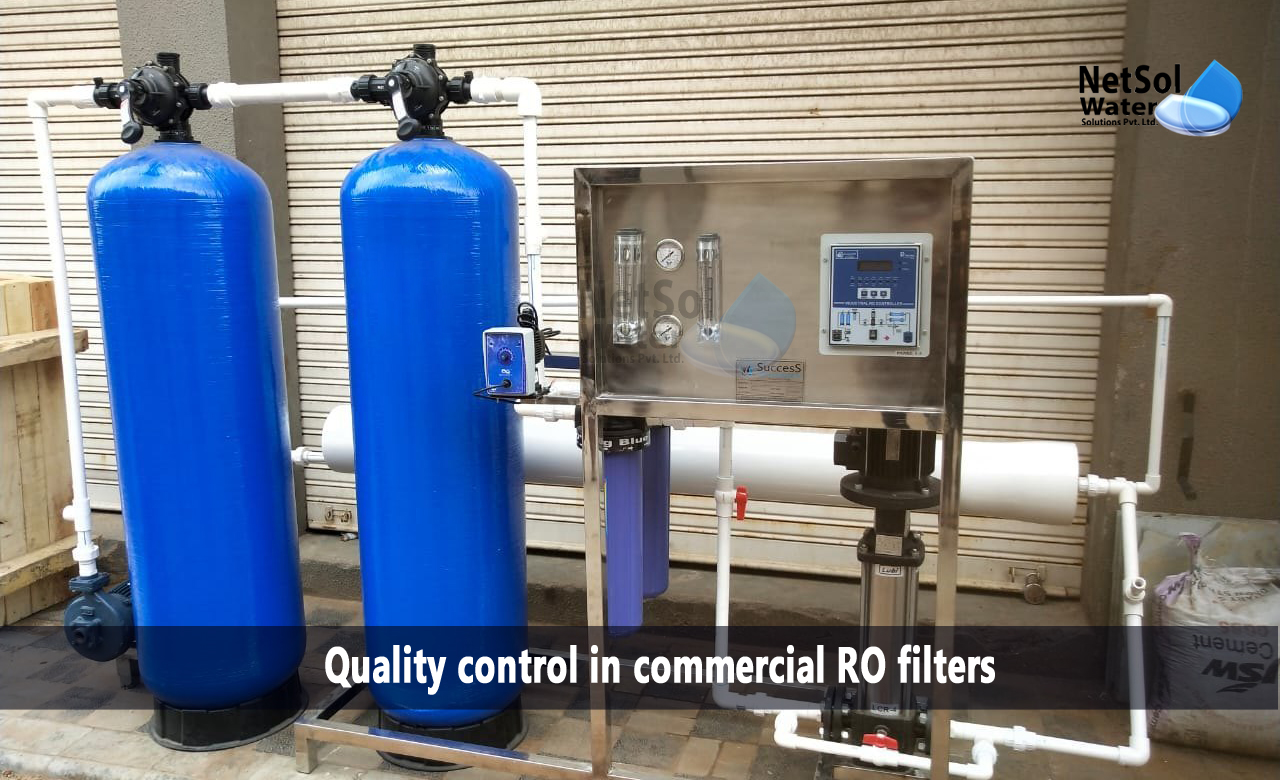Quality control is an essential aspect of the operation of commercial reverse osmosis (RO) filters. The quality of the product water produced by the RO system is critical to ensuring the safety and health of consumers, as well as meeting regulatory standards.
In this blog, we will discuss the importance of quality control in commercial RO filters, the various methods used for quality control, and best practices for maintaining optimal water quality.
Importance of Quality Control in Commercial RO Filters:
The main goal of commercial RO filters is to remove impurities and contaminants from the feed water to produce purified water. The quality of the product water produced by the RO system depends on various factors, including the quality of the feed water, the design of the system, and the operation and maintenance of the system.
Quality control is essential to ensure that the RO system is producing water that meets the desired quality standards. The product water should be free of contaminants such as bacteria, viruses, and chemicals that can pose a health risk to consumers. Quality control also helps to identify any issues or problems with the RO system, such as membrane fouling or leaks, before they result in poor water quality.
Methods of Quality Control in Commercial RO Filters:
There are various methods used for quality control in commercial RO filters. The following are some of the most common methods:
1. Sampling and testing: Regular sampling and testing of the product water is essential to monitor water quality and ensure that it meets the desired quality standards. The frequency of sampling and testing will depend on various factors, such as the type of contaminants in the feed water and the regulatory requirements.
2. Membrane cleaning: Membrane fouling is a common issue in RO systems that can result in poor water quality and reduced system performance. Regular membrane cleaning is necessary to remove fouling and maintain optimal system performance. Various cleaning methods can be used, including chemical cleaning, backwashing, and air scouring.
3. Pre-treatment: Pre-treatment is an important step in RO systems that helps to remove suspended solids and other impurities from the feed water before it enters the RO membrane. Proper pre-treatment is essential to maintain optimal membrane performance and ensure that the product water meets the desired quality standards.
4. System monitoring: Regular monitoring of system parameters such as feed water pressure, flow rate, and pH can help to identify any issues or problems with the RO system. This can help to prevent poor water quality and ensure optimal system performance.
Best Practices for Quality Control in Commercial RO Filters:
To ensure optimal water quality and maintain optimal system performance, it is important to follow best practices for quality control in commercial RO filters. The following are some best practices:
Regular system maintenance: Regular maintenance of the RO system, including membrane cleaning and replacement, is essential to maintain optimal system performance and ensure optimal water quality.
1. Proper pre-treatment: Proper pre-treatment is essential to prevent membrane fouling and ensure optimal system performance. This may include pre-filtration, chemical treatment, or other pre-treatment methods.
2. Regular sampling and testing: Regular sampling and testing of the product water is essential to monitor water quality and ensure that it meets the desired quality standards. This may include testing for various contaminants such as bacteria, viruses, and chemicals.
3. System monitoring: Regular monitoring of system parameters such as feed water pressure, flow rate, and pH can help to identify any issues or problems with the RO system. This can help to prevent poor water quality and ensure optimal system performance.
4. Proper training and education: Proper training and education of system operators and maintenance personnel is essential to ensure that the RO system is operated and maintained properly. This can help to prevent issues such as membrane fouling and poor water quality.
5. Regulatory compliance: Compliance with regulatory requirements is essential to ensure that the RO system
Do you need an advice or assistance on selecting the best water and waste water treatment unit? We have solutions for all your problems!
Let us now your problem, our experts will make sure that it goes away.
For an assistance or related query,
Call on +91-965-060-8473
Or write us at enquiry@netsolwater.com



